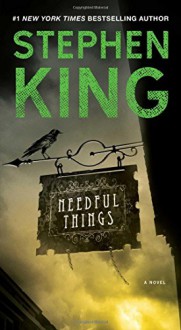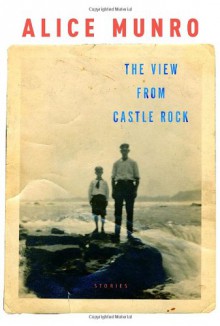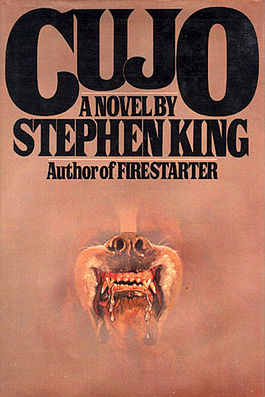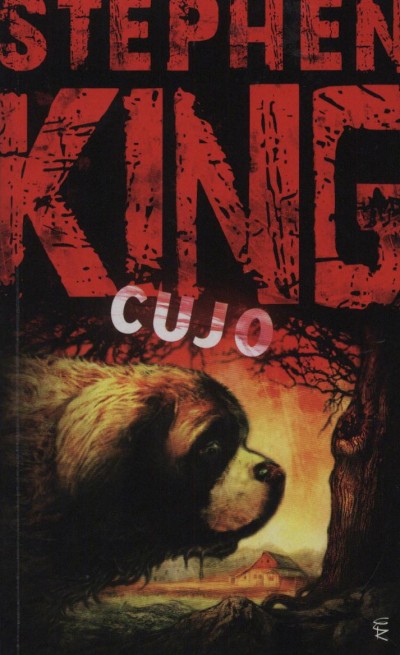



Needful Things is my favorite Stephen King novel. Hell, it's probably my favorite novel, period. I felt that way going into this reread, and those feelings did not change upon reading it for the...fourth time, I think it is now. King nails everything here: exceptional character work, horror and comedy in equal measure, and one of his most memorable endings to date.
I know this novel has its detractors, and that's cool. Different strokes for different folks, brother. This novel is long (but not extraneous, he emphasized) and stars one of King's largest casts. I dig that, and some readers don't. Personally, I love every character here: Buster Keeton, Nettie Cobb, Hugh Priest, Willie Rose — that old Catholic-hating reverend. This novel is King at his most Dickensian: these small town people are folks all readers can relate to; the way these characters' lives intertwine with one another are an absolute joy to read about. And like the best of Dickens's work, this book is hilarious at times. I laugh until I cry every time I read Needful Things; typically I find King's humor to be a little hit or miss. In this 1991 satire, he hits the nail on the head every. single. time. I would wager SK had a ton of fun writing this novel because it's a blast to read. That's not to say this book is lighthearted or breezy; it's anything but. While it has it's hilarious moments, those are contrasted sharply with some of the darkest, most despairing scenes King has ever penned. Why is this book not mentioned in the same breath as Pet Sematary or Cujo when this author's bleakest works are discussed? Some of the text is almost too downtrodden to bare (I'm thinking, for instance, of Cora Rusk's distraction — her longing to go back to her Elvis fantasy — and inability to understand what has just happened to her son. No spoilers!)
As well, it is as relevant today as it was in 1991 — if not more so. For the last eighteen months or thereabouts, I have watched roughly 40% of my country's citizens fall victim to an aging con man, someone who preyed and still preys on the weak, scared, angry and greedy to win the presidential election and further his agenda (or sow chaos; whatever you want to call it). In a sense, this novel feels just as chilling and timely in the Trump era as 1984 or It Can't Happen Here.
Needless to say, this is King's masterwork — at least, for me it is. Some folks would say that title falls to the Dark Tower series or It or The Stand. That's fine. Literature is so damn subjective and every Constant Reader is different. But for me, Needful Things is the tome that shows the impossible heights King is capable of climbing to. He's come close since — and he had come close before this novel released — but this is in a class all its own. My highest recommendation, and then some.
Favorite Quote
"The goods which had so attracted the residents of Castle Rock — the black pearls, the holy relics, the carnival glass, the pipes, the old comic books, the baseball cards, the antique kaleidoscopes — were all gone. Mr. Gaunt had gotten down to his real business, and at the end of things, the business was always the same. The ultimate item had changed with the years, just like everything else, but such changes were surface things, frosting of different flavors on the same dark and bitter cake.
At the end, Mr. Gaunt always sold them weapons . . . and they always bought."
King Connections
Confession: I did not take notes while reading this. I know, I know; bad Cody! I just wanted to enjoy the ride.
This is subtitled "The Last Castle Rock Story", so of course it's the punctuation mark on the Castle Rock saga. Connections big and small to The Dead Zone, The Body, Cujo, The Dark Half, and The Sun Dog pop up.
The book's epilogue is set in Junction City, Iowa, which was the setting for 1990's novella The Library Policeman.
The car Ace Merrill picks up for Mr. Gaunt is a Tucker Talisman — a type of car that does not exist, and I am almost tempted to say its name is a reference to The Talisman. As well, when Ace sits in the Talisman for the first time he thinks about how fine a new car smells. "Nothing smells better," he remarks, "except maybe pussy." This line is almost certainly a throwback to Christine, as that same thought is expressed by a character in that novel. Pretty cool.
I am sure there are many more connections to be found here (there are references to Derry and some scenes are set in Cumberland Hospital, which is close to Jerusalem's Lot), but I didn't feel like chasing them. Say sorry.

![In einer kleinen Stadt [Needful Things] - Stephen King,Christel Wiemken In einer kleinen Stadt [Needful Things] - Stephen King,Christel Wiemken](http://booklikes.com/photo/max/220/330/upload/books/48/21/be7644fad94e3321a816dff73a400436.jpg) „In einer kleinen Stadt: Needful Things“ von Stephen King habe ich mir vorgenommen, weil mein Bauch so laut danach schrie, dass ich seinen Wunsch nicht ignorieren konnte. Ich weiß nicht, warum er plötzlich von heute auf morgen der Ansicht war, dass die Zeit ausgerechnet für dieses Buch gekommen sei, war aber gern bereit, mich darauf einzulassen. Meinen letzten King hatte ich im Juli 2015 gelesen; es handelte sich um „Stark: The Dark Half“. Beide Romane werden dem Castle-Rock-Zyklus zugeordnet, wobei „In einer kleinen Stadt“ passenderweise chronologisch nach „Stark“ angesiedelt ist. Ursprünglich plante King, den Zyklus mit diesem Werk abzuschließen, kehrte in den folgenden Jahren allerdings doch mehrfach nach Castle Rock, die fiktive Kleinstadt im Westen Maines, zurück.
In einer kleinen Stadt wie Castle Rock ist die Eröffnung eines neuen Geschäfts eine mittlere Sensation. Natürlich würde es niemals jemand zugeben, aber als an der Main Street eine schöne grüne Markise angebracht wird, ergreift eine Atmosphäre mühsam im Zaum gehaltener Neugier die Stadt. »Needful Things« steht auf dem Schild an der Tür. Der Inhaber ist Leland Gaunt, ein Fremder von außerhalb. Er verspricht eine völlig neue Art von Laden und er hält Wort: bei »Needful Things« gibt es alles, was das Herz begehrt – zu Spottpreisen. Geld scheint Mr. Gaunt nicht besonders wichtig zu sein. Stattdessen erwartet er von seinen Kund_innen als Teil der Bezahlung, dass sie ihren Nachbar_innen kleine Streiche spielen. Was ist schon dabei? Doch der harmlose Spaß entwickelt sich unaufhaltsam zu tödlichem Ernst, die Situation gerät außer Kontrolle und Castle Rock stürzt ins Chaos. Werden einige wenige aufrechte Bürger_innen ausreichen, um die Stadt zu retten?
Ich bin ein bisschen perplex. „In einer kleinen Stadt“ hat meine Erwartungen weit übertroffen. Nicht hinsichtlich des Inhalts, denn diesen schätzte ich bereits vor der Lektüre als gewohnt aufregend und unheimlich ein, sondern hinsichtlich des Schreibstils. Stephen King hat irgendetwas verändert. Anscheinend hat er an ein paar Schräubchen gedreht, denn dieses Werk ist der erste und bisher einzige Roman aus seiner Feder, der meine Aufmerksamkeit ungebrochen zu fesseln vermochte. „In einer kleinen Stadt“ weist keinerlei Längen auf. Es ist durchgehend spannend. Für mich ist das eine kleine Sensation, denn ich war fest darauf eingestellt, es wieder einmal mit einigen zähen Passagen zu tun zu bekommen, durch die ich mich würde durchbeißen müssen. Vielleicht lag es daran, dass ich wirklich aus tiefstem Herzen Lust auf dieses Buch hatte, vielleicht hat King mehr Wert auf einen konstanten Spannungsbogen gelegt – was immer es war, „In einer kleinen Stadt“ hielt mich pausenlos in Atem, obwohl sich die Handlung recht gemütlich entfaltet. Es beginnt harmlos: »Needful Things« eröffnet in Castle Rock und Mr. Gaunt bemüht sich rührend, die sehnlichsten Wünsche aller Bewohner_innen der Stadt zu erfüllen. Dass Gaunt keineswegs ein wohltätiger Samariter und Geschäftsmann ist, lässt King erst nur anklingen. Ein bedrohlicher Blick hier, ein gemurmeltes Wort da, ein Händeschütteln, das Abscheu auslöst. Er vermittelt seinen Leser_innen subtil, dass Misstrauen angebracht ist und bringt sie dadurch in die für Horrorgeschichten typische überlegene Position. Ich konnte beobachten, wie die Bürger_innen von Castle Rock der Gier nachgaben und Mr. Gaunt auf den Leim gingen; ich wollte ihnen zurufen, sich nicht auf diesen aalglatten Händler einzulassen und spürte lebhaft, wie sich die Spirale des Terrors zuzog und sich die Ereignisse bis zur Eskalation zuspitzten. Meiner Meinung nach haben die Menschen in Castle Rock zwei bedeutende Schwachstellen, die King Gaunt perfide ausnutzen ließ: ihre Habsucht und ihre Streitigkeiten untereinander. Gaunt spielt meisterhaft auf der Klaviatur der Kleinstadt-Fehden und hetzt alle Akteure geschickt gegeneinander auf, sodass am Ende er allein als Profiteur dasteht. Er treibt jeden noch so kleinen schwelenden Zwist auf die Spitze und bedient sich dabei (zumindest anfangs) erstaunlich zurückhaltender Mittel. Es überraschte mich, wie wenig nötig ist, um die Konflikte gottesfürchtiger, anständiger und strikt bürgerlicher Leute in hässliche Gewalttätigkeiten ausufern und eine ganze Stadt in Anarchie versinken zu lassen. Natürlich kann eine derartige Situation nicht für alle Beteiligten glimpflich ausgehen. Ich fand, dass Stephen King sehr hart mit seinen Figuren ins Gericht geht und sie für ihre Fehler bitter bestraft. Besonders in einem Fall wünschte ich mir vergeblich, dass er Nachsicht und Gnade walten ließe. Trotz dessen verstehe ich, warum er streng war, niemanden davonkommen und sie alle leiden ließ. Castle Rock musste geläutert werden. Läuterung verlangt nach Schmerz.
Mir gefiel „In einer kleinen Stadt“ hervorragend. Es ist eine mitreißende Geschichte von Gier, Bedürfnissen und Manipulation, die das Klischee der Kleinstadtidylle auf faszinierende Weise pervertiert. Obwohl Stephen King das eine oder andere übernatürliche Elemente einarbeitete, sind es in Wahrheit doch wieder einmal die Abgründe der menschlichen Psyche und Natur, die das Grauen dieses Buches prägen. Man stelle sich vor, alle Fehden einer kleinen Stadt würden mit einem Schlag eskalieren, aus welchem Grund auch immer – das Ergebnis ist den Geschehnissen nicht unähnlich, die King für „In einer kleinen Stadt“ so farbenfroh beschreibt. Lässt man das Übernatürliche weg, ist seine Schreckensvision unwahrscheinlich, aber dennoch vorstellbar und genau das ist der Grund, warum ich ihn als Autor unheimlicher Geschichten schätze. Er hat erkannt, dass wir Menschen selbst die furchteinflößende Quelle unseres Horrors sind. Vielleicht ist die schützende Schicht namens Zivilisation, die unsere Triebe unter Verschluss hält, um einiges dünner, als wir glauben möchten.
„In einer kleinen Stadt: Needful Things“ von Stephen King habe ich mir vorgenommen, weil mein Bauch so laut danach schrie, dass ich seinen Wunsch nicht ignorieren konnte. Ich weiß nicht, warum er plötzlich von heute auf morgen der Ansicht war, dass die Zeit ausgerechnet für dieses Buch gekommen sei, war aber gern bereit, mich darauf einzulassen. Meinen letzten King hatte ich im Juli 2015 gelesen; es handelte sich um „Stark: The Dark Half“. Beide Romane werden dem Castle-Rock-Zyklus zugeordnet, wobei „In einer kleinen Stadt“ passenderweise chronologisch nach „Stark“ angesiedelt ist. Ursprünglich plante King, den Zyklus mit diesem Werk abzuschließen, kehrte in den folgenden Jahren allerdings doch mehrfach nach Castle Rock, die fiktive Kleinstadt im Westen Maines, zurück.
In einer kleinen Stadt wie Castle Rock ist die Eröffnung eines neuen Geschäfts eine mittlere Sensation. Natürlich würde es niemals jemand zugeben, aber als an der Main Street eine schöne grüne Markise angebracht wird, ergreift eine Atmosphäre mühsam im Zaum gehaltener Neugier die Stadt. »Needful Things« steht auf dem Schild an der Tür. Der Inhaber ist Leland Gaunt, ein Fremder von außerhalb. Er verspricht eine völlig neue Art von Laden und er hält Wort: bei »Needful Things« gibt es alles, was das Herz begehrt – zu Spottpreisen. Geld scheint Mr. Gaunt nicht besonders wichtig zu sein. Stattdessen erwartet er von seinen Kund_innen als Teil der Bezahlung, dass sie ihren Nachbar_innen kleine Streiche spielen. Was ist schon dabei? Doch der harmlose Spaß entwickelt sich unaufhaltsam zu tödlichem Ernst, die Situation gerät außer Kontrolle und Castle Rock stürzt ins Chaos. Werden einige wenige aufrechte Bürger_innen ausreichen, um die Stadt zu retten?
Ich bin ein bisschen perplex. „In einer kleinen Stadt“ hat meine Erwartungen weit übertroffen. Nicht hinsichtlich des Inhalts, denn diesen schätzte ich bereits vor der Lektüre als gewohnt aufregend und unheimlich ein, sondern hinsichtlich des Schreibstils. Stephen King hat irgendetwas verändert. Anscheinend hat er an ein paar Schräubchen gedreht, denn dieses Werk ist der erste und bisher einzige Roman aus seiner Feder, der meine Aufmerksamkeit ungebrochen zu fesseln vermochte. „In einer kleinen Stadt“ weist keinerlei Längen auf. Es ist durchgehend spannend. Für mich ist das eine kleine Sensation, denn ich war fest darauf eingestellt, es wieder einmal mit einigen zähen Passagen zu tun zu bekommen, durch die ich mich würde durchbeißen müssen. Vielleicht lag es daran, dass ich wirklich aus tiefstem Herzen Lust auf dieses Buch hatte, vielleicht hat King mehr Wert auf einen konstanten Spannungsbogen gelegt – was immer es war, „In einer kleinen Stadt“ hielt mich pausenlos in Atem, obwohl sich die Handlung recht gemütlich entfaltet. Es beginnt harmlos: »Needful Things« eröffnet in Castle Rock und Mr. Gaunt bemüht sich rührend, die sehnlichsten Wünsche aller Bewohner_innen der Stadt zu erfüllen. Dass Gaunt keineswegs ein wohltätiger Samariter und Geschäftsmann ist, lässt King erst nur anklingen. Ein bedrohlicher Blick hier, ein gemurmeltes Wort da, ein Händeschütteln, das Abscheu auslöst. Er vermittelt seinen Leser_innen subtil, dass Misstrauen angebracht ist und bringt sie dadurch in die für Horrorgeschichten typische überlegene Position. Ich konnte beobachten, wie die Bürger_innen von Castle Rock der Gier nachgaben und Mr. Gaunt auf den Leim gingen; ich wollte ihnen zurufen, sich nicht auf diesen aalglatten Händler einzulassen und spürte lebhaft, wie sich die Spirale des Terrors zuzog und sich die Ereignisse bis zur Eskalation zuspitzten. Meiner Meinung nach haben die Menschen in Castle Rock zwei bedeutende Schwachstellen, die King Gaunt perfide ausnutzen ließ: ihre Habsucht und ihre Streitigkeiten untereinander. Gaunt spielt meisterhaft auf der Klaviatur der Kleinstadt-Fehden und hetzt alle Akteure geschickt gegeneinander auf, sodass am Ende er allein als Profiteur dasteht. Er treibt jeden noch so kleinen schwelenden Zwist auf die Spitze und bedient sich dabei (zumindest anfangs) erstaunlich zurückhaltender Mittel. Es überraschte mich, wie wenig nötig ist, um die Konflikte gottesfürchtiger, anständiger und strikt bürgerlicher Leute in hässliche Gewalttätigkeiten ausufern und eine ganze Stadt in Anarchie versinken zu lassen. Natürlich kann eine derartige Situation nicht für alle Beteiligten glimpflich ausgehen. Ich fand, dass Stephen King sehr hart mit seinen Figuren ins Gericht geht und sie für ihre Fehler bitter bestraft. Besonders in einem Fall wünschte ich mir vergeblich, dass er Nachsicht und Gnade walten ließe. Trotz dessen verstehe ich, warum er streng war, niemanden davonkommen und sie alle leiden ließ. Castle Rock musste geläutert werden. Läuterung verlangt nach Schmerz.
Mir gefiel „In einer kleinen Stadt“ hervorragend. Es ist eine mitreißende Geschichte von Gier, Bedürfnissen und Manipulation, die das Klischee der Kleinstadtidylle auf faszinierende Weise pervertiert. Obwohl Stephen King das eine oder andere übernatürliche Elemente einarbeitete, sind es in Wahrheit doch wieder einmal die Abgründe der menschlichen Psyche und Natur, die das Grauen dieses Buches prägen. Man stelle sich vor, alle Fehden einer kleinen Stadt würden mit einem Schlag eskalieren, aus welchem Grund auch immer – das Ergebnis ist den Geschehnissen nicht unähnlich, die King für „In einer kleinen Stadt“ so farbenfroh beschreibt. Lässt man das Übernatürliche weg, ist seine Schreckensvision unwahrscheinlich, aber dennoch vorstellbar und genau das ist der Grund, warum ich ihn als Autor unheimlicher Geschichten schätze. Er hat erkannt, dass wir Menschen selbst die furchteinflößende Quelle unseres Horrors sind. Vielleicht ist die schützende Schicht namens Zivilisation, die unsere Triebe unter Verschluss hält, um einiges dünner, als wir glauben möchten.


THE VIEW FROM CASTLE ROCK - The short story, titled The View from Castle Rock, is also a collection. In this review, my focus is the short story, not the book. The Laidlaws emigrate from Scotland to Canada in 1818. For the first time in their lives, family members board the ship: Old James (father), Andrew (son), Agnes (son’s wife) their infant son (Young James) and siblings (Mary and James). They depart on a sea passage: Agnes gives birth to a girl, Walter documents the voyage in his journal, Young James becomes lost and after a frantic search, Mary finds him. The ship full of emigrants reaches Nova Scotia; amazed by groves of trees, clear shining sky, fresh air and a profusion of sea birds. The sailors fire shots at the birds, point out a whale ship side, passengers break out a fiddle and everyone dances with joy. Near the conclusion Walter has become a close companion to Nettie, a rich girl suffering from tuberculosis. Mr. Carbert, her father, offers Walter a position in Montreal. He refuses, since he means to work the land with his family. The short story and collected book of stories, under the same name, follows Munro’s family history.
http://chadschimke.blogspot.com/2011/11/new-yorker-short-story-review-view-from.html
http://chadschimke.blogspot.com/2011/12/free-e-book-pdf-download-munro.html
http://chadschimke.blogspot.com/2011/11/free-audio-book-mp3-download-munro.html





Synopsis: It happens innocently enough, but doesn’t it always. A big, friendly dog chases a rabbit into a hidden underground cave—and stirs a sleeping evil crueler than death itself.
A terrified four-year-old boy sees his bedroom closet door swing open untouched by human hands, and screams at the unholy red eyes gleaming in the darkness.
The little Maine town of Castle Rock is about to be invaded by the most hideous menace ever to savage the flesh and devour the mind.
*****
Of Stephen King's novels, this is probably the most difficult one for me to read. It's well-written, don't get me wrong -- the prose here is absolutely gorgeous, among King's most direct and yet, somehow, so poetic -- but it is so bleak. There is nary a light in the tunnel. Instead, this novel is King's way of shrugging his shoulders and saying "stuff happens." Like Roadwork before it, Cujo's gritty realism can yield fascinating results, but the journey is absolutely gut-wrenching.
What makes Cujo so fascinating in the context of King's entire oeuvre is this is his first novel that relies totally (or . . . mostly, anyway) on humanistic elements to supply the horror. The supernatural is hinted at, but this is a novel firmly rooted in real life. The events of this story could really happen, and that's what makes it work so well. The horror is totally believable. Before Cujo (Bachman books aside), there was always a supernatural element at the forefront of every King novel -- ghosts, vampires, psychic ability. Those weren't the only elements in their respective novels, but they were responsible for driving the narratives forward. Without those things, those novels would not be what they are. With Cujo, King decided to take a risk, and it worked. It was a deviation from what his fans had come to expect from him, but it worked. With this novel and the book of novellas that would come in 1982, Different Seasons, Stephen King proved he was unafraid to experiment and publish books that didn't fit what was expected of him. With books like Joyland, 11/22/63, and the Bill Hodges trilogy, King is still showing he still is not afraid to play by the rules and would, rather, continue throwing his readers curve-balls. Good on him, I say.

One criticism I often hear about Cujo is the coincidences and their seemingly . . ahem, unrealistic characteristics. This is a novel that moves totally on coincidences. I'll try not to get too spoiler-y for those who haven't read this novel yet, so I'll say this: this is a book that acts as a commentary on the rather cruel indifference of fate. Horror comes from the mundane; because all of the main characters happen to be in the wrong place at the wrong time, the events of the novel are allowed to happen. Some readers get frustrated at that, saying you can almost see the author moving the characters around like chess pieces, and that is totally valid. I can see where they're coming from. It all works for me, though. I think King is totally in on the fact that it all seems so . . . mechanical, the way he moves the characters around. I think that's the whole point. He wants the reader to feel frustrated, exasperated -- just like the characters in the novel. Charity Camber is frustrated about her life choices and her son idolizing his crappy father; Vic Trenton is frustrated that his ad company is experiencing problems and his wife has recently had an affair; Steve Kemp is frustrated that Donna has recently ended the affair with him; Donna Trenton is frustrated at growing older and being so bored -- she feels her life is going nowhere. The characters are frustrated by simple fate, and I think King wanted the reader to feel their pain . . . at least a little bit. Heck, the seemingly "conspiring" coincidences are mentioned more than once by a couple of the characters at different times throughout the narrative. So, yeah. I think King was totally in on the seemingly mechanical (or forced, if you prefer) way the plot is pushed forward.

Another criticism I often hear about this novel is the detail given to the subplots -- especially the one involving Charity and Brett's trip to Connecticut. I've never minded the subplots -- the deviation from the main attraction (mother and son trapped in a Pinto by a rabid Cujo) make the pages spent in the Cambers' dooryard all the more horrific. The characters in this novel are fascinating and I could have read 100 more pages about all of them, truth be told. I don't see the subplots as King trying to beef up the page count but instead fully examining these people he's brought to life. If they weren't interesting I would probably complain and possibly dock a star, but I always enjoy the excursions away from the hot Pinto, if only because they offer a little relief.
In case you haven't picked up on it, Cujo is a grim little novel. I really think King was trying to go for the throat with this one, and he succeeded. It's one of the few novels by the Maine author that twists my stomach into knots; it's one of the few I'm never sure if I'll be able to finish. It's a horrific novel, but the scares are entirely realistic -- they could happen to you or me. Cujo is the official start of what I consider to be King's darkest period -- a period including works such as "Apt Pupil", Christine, Pet Sematary, IT, The Tommyknockers, The Dark Half, and Needful Things. This period will see King explore themes he had never explored before; it will see him going back to themes he had touched on before, getting his final word in on them. In it he will reach the apex of his cocaine and alcohol addictions and then quit the stuff altogether, making for some of his most fascinating -- and most depressing -- works. However, I don't think any of them reach the bleakness of Cujo. . . but, I suppose, we will see.

King connections: This novel takes place in Castle Rock, Maine, site of previous novel The Dead Zone. Several characters from that book pop up here -- either physically or by being mentioned -- such as Sheriff Bannerman, Johnny Smith, and Frank Dodd.
Favorite quote: “It would perhaps not be amiss to point out that he had always tried to be a good dog. He had tried to do all the things his MAN and his WOMAN, and most of all his BOY, had asked or expected of him. He would have died for them, if that had been required. He had never wanted to kill anybody. He had been struck by something, possibly destiny, or fate, or only a degenerative nerve disease called rabies. Free will was not a factor.”
Up next: We're running for our lives (I'm just going by the book's tag-line here; I have no clue what this one's about.) -- it's The Running Man!